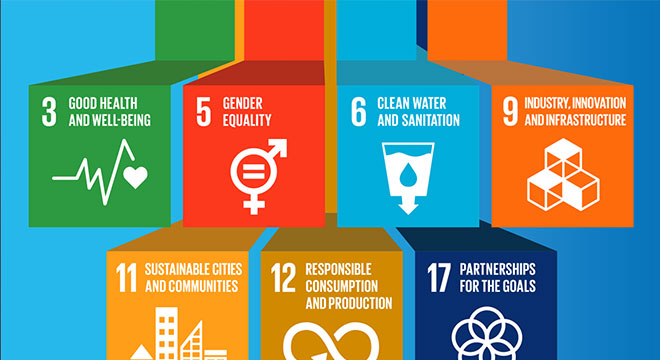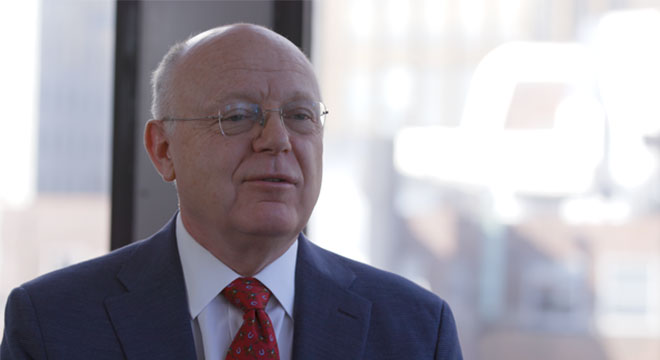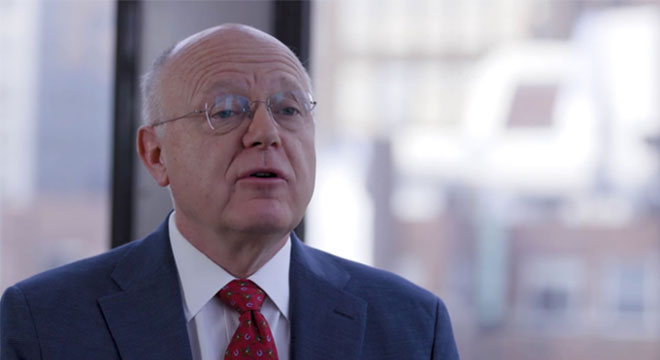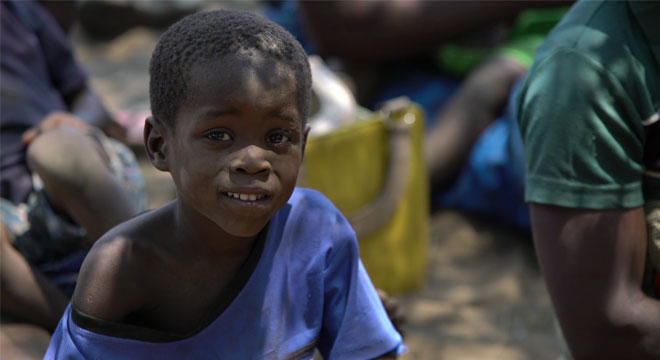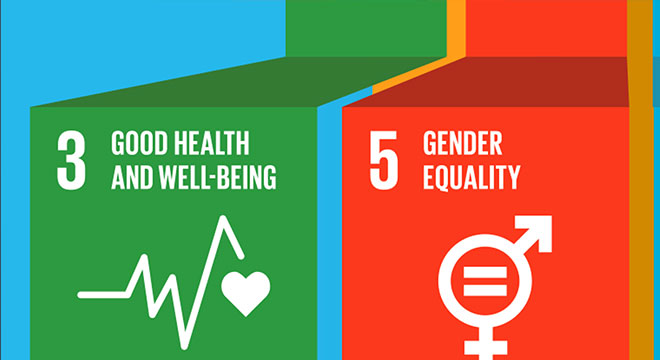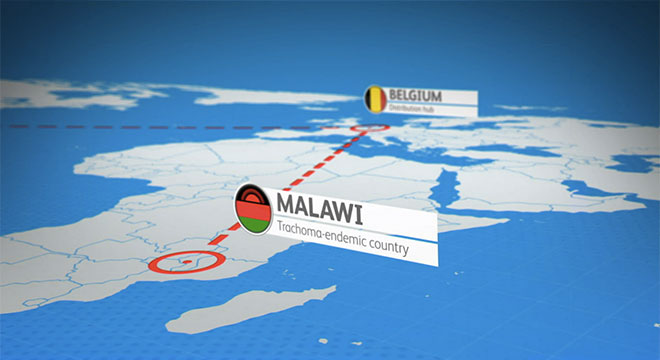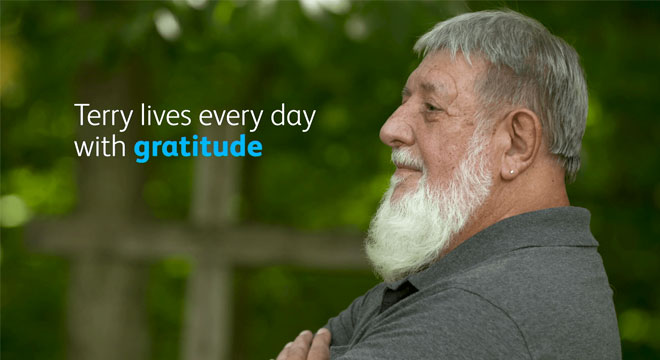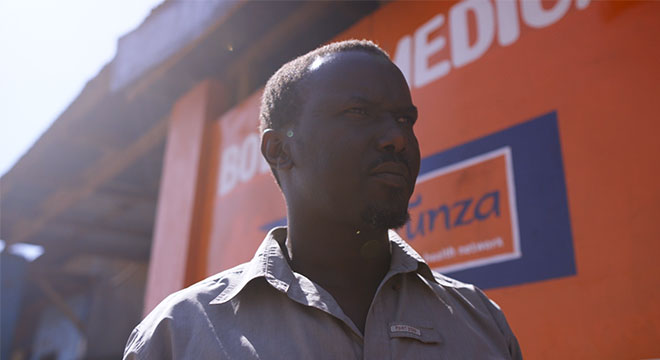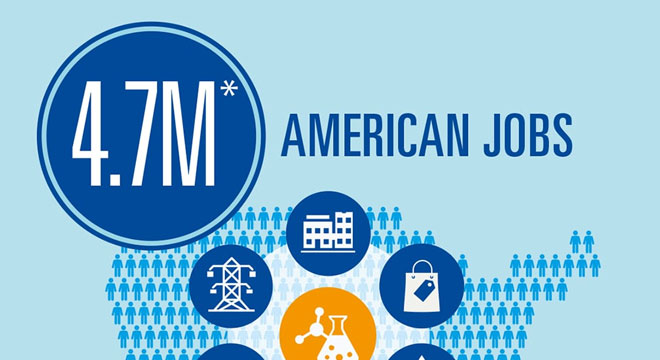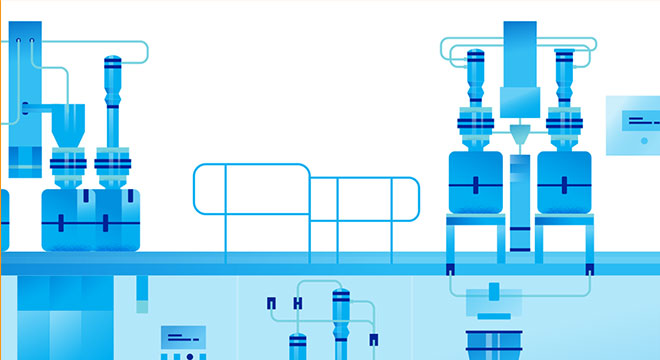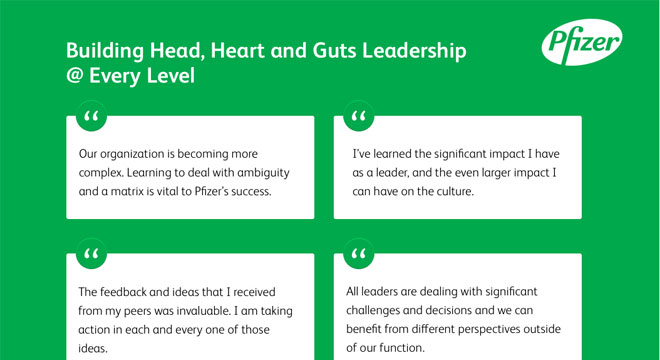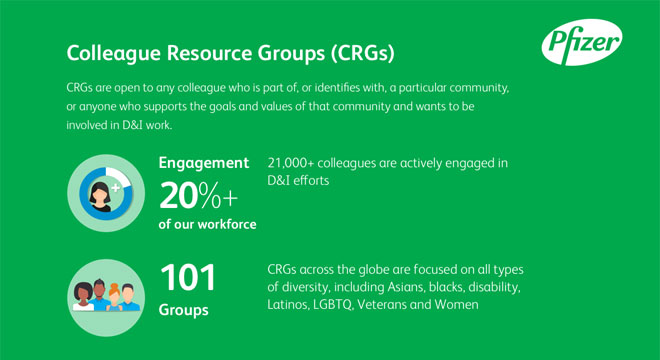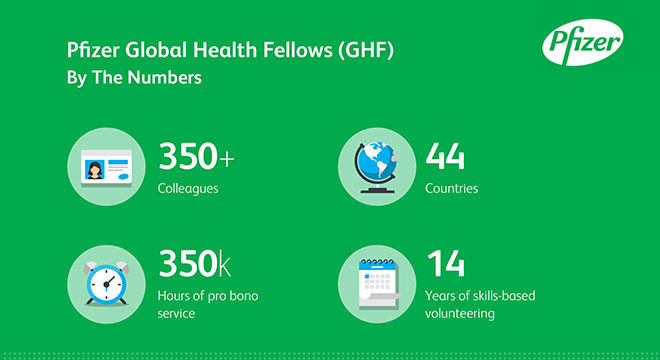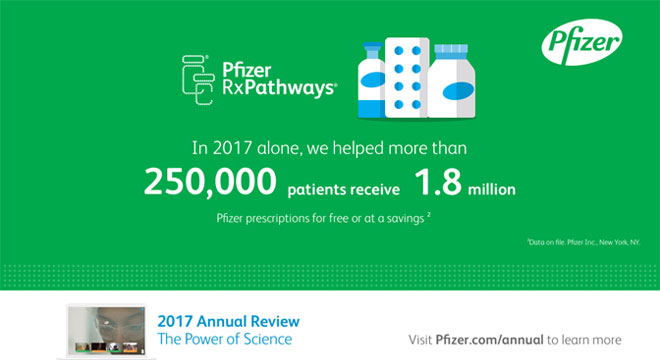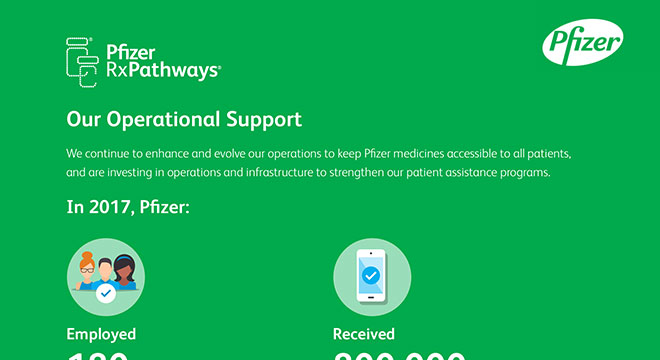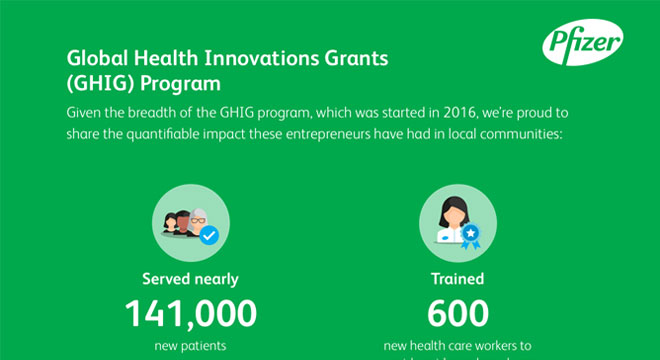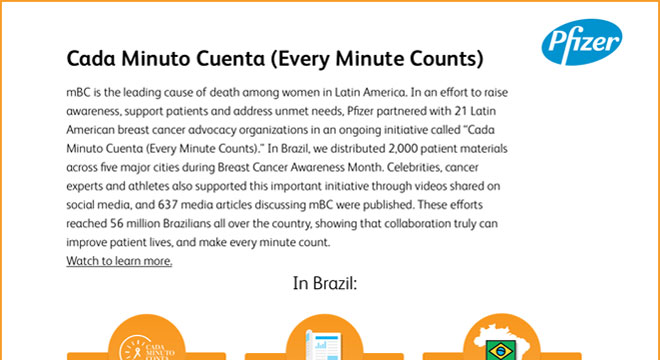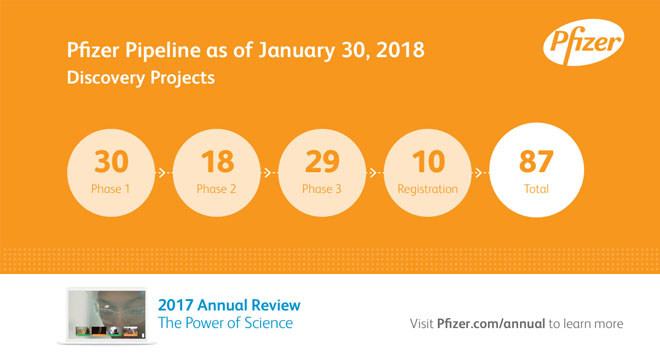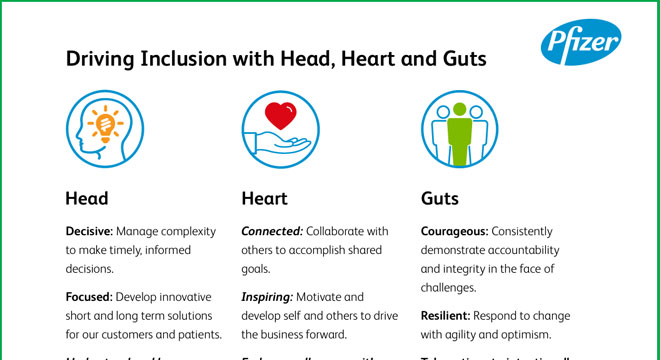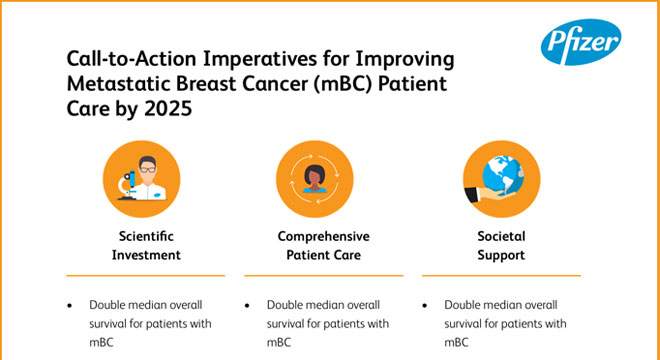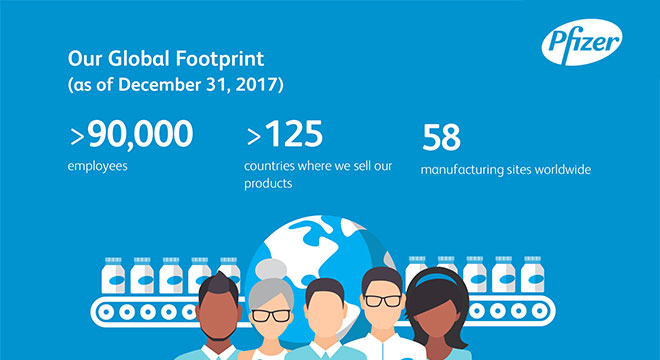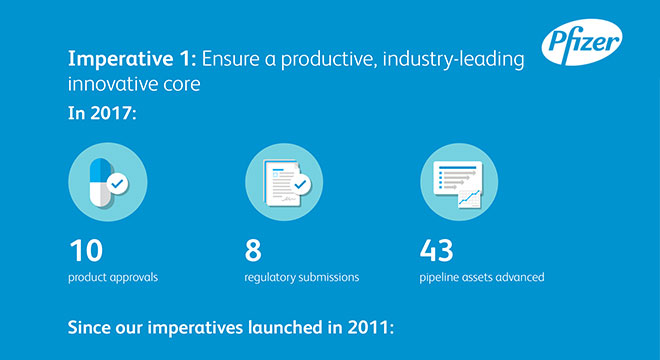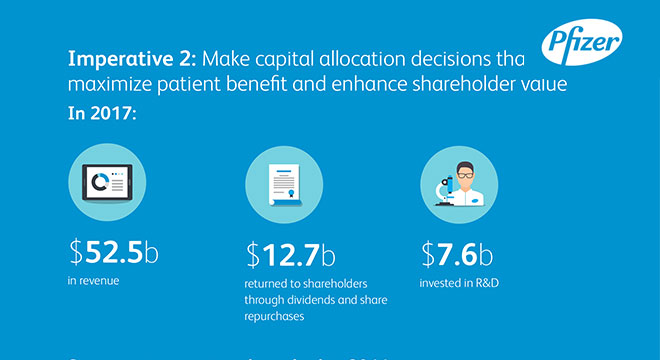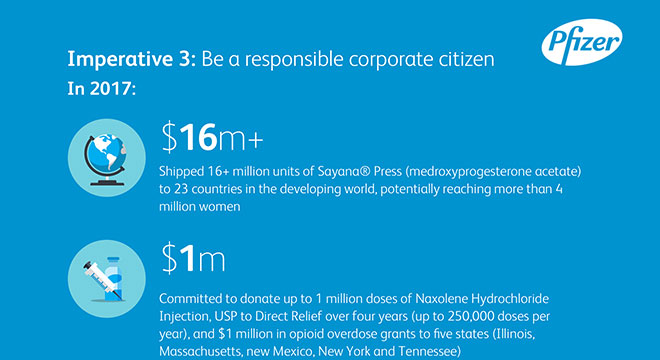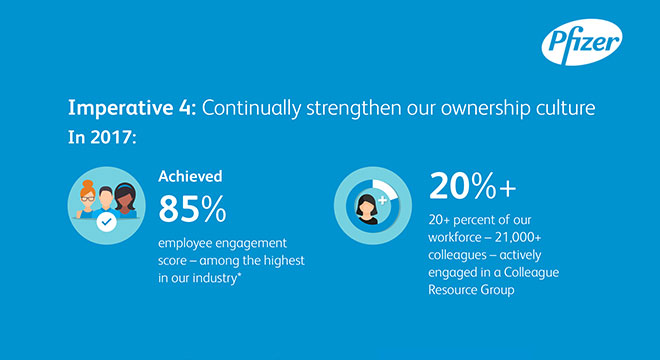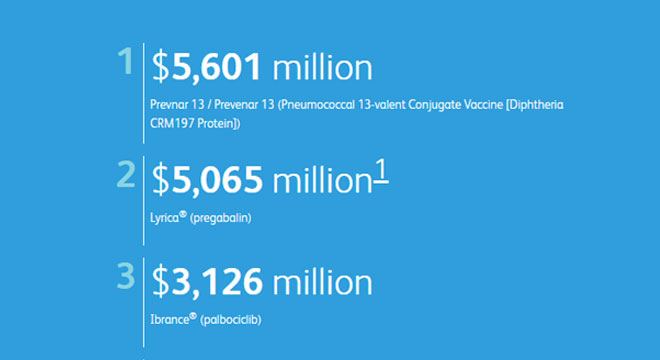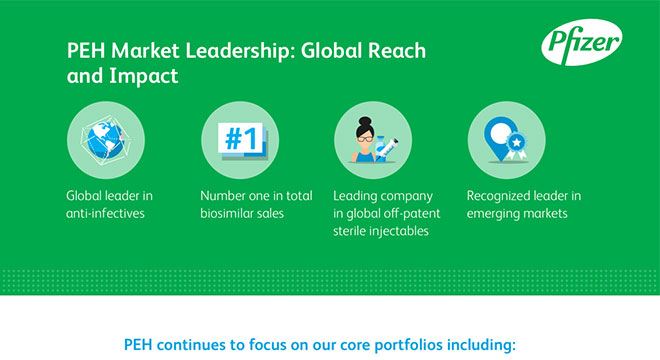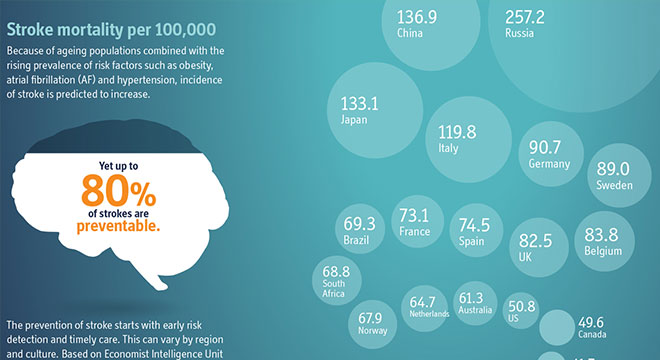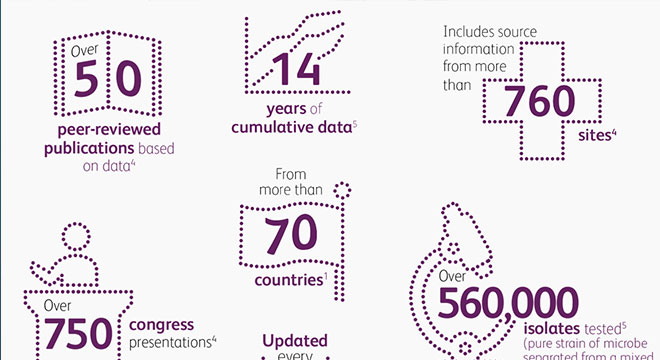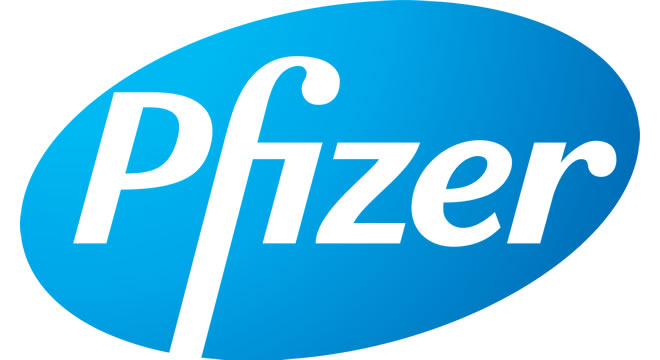Our Business, Our Purpose
Community Health
Pfizer is committed to helping patients live the healthiest and fullest lives possible. This is driven by our scientific and rigorous approach to working with our partners as we continually evaluate community health needs and find integrated, long-term solutions that best serve patients. Our deep partnerships with community organizations, non-governmental organizations (NGOs), global health bodies, industry peers and others, inform our understanding of the unique needs of communities and are the foundation upon which we can develop programs that yield meaningful improvements in global health.
Pfizer Essential Health is uniquely positioned to serve the unmet needs of patients in developing countries. Many of our medicines are on the World Health Organization’s Model List of Essential Medicines and are critical to improving global public health. The business has a number of initiatives underway or in development in family planning and non-communicable diseases such as cardiovascular disease and cancer.
Turning Hope into Action for Underserved Patient Communities
We announced the launch of SpringWorks Therapeutics, LLC, a mission-driven medicines company dedicated to developing and advancing innovative new treatments for underserved patient communities. SpringWorks Therapeutics was originally conceived of by Pfizer as an innovative way to advance investigational therapies that may hold significant promise for underserved patients. Bain Capital Life Sciences, Bain Capital Double Impact, OrbiMed Advisors LLC and Life Arc are founding funding partners alongside Pfizer.
The company’s collaborative business model is designed to deliver both social and financial returns via partnerships with a variety of stakeholders, including scientists, biopharmaceutical partners, patient groups, funders and philanthropists.
SpringWorks Therapeutics is focused on underserved patient populations where there is great medical need. The company is currently advancing studies in four diseases areas – desmoid tumor, neurofibromatosis, hereditary xerocytosis and post-traumatic stress disorder – all of which currently have no cure. SpringWorks Therapeutics plans to expand its pipeline by continuing to partner with other life science companies and academic institutions who share in the company’s mission.
“We hope that our investment in SpringWorks Therapeutics will, over time, enable us to realize even more value for patients and society. It started as an idea about a new way to get things done with – and for – patients, and it’s been a tremendous team effort. Along with our partners, we are excited to see it become a reality.”
Freda Lewis-Hall, M.D., DFAPA, Executive Vice President and Chief Medical Officer
Reducing Society's Dependence on Tobacco
Tobacco use places a significant health and economic burden on individuals and societies around the world. Smoking is linked to serious illnesses such as cancer, heart disease, stroke, diabetes and lung disease, and kills nearly six million people each year, making tobacco use the leading cause of preventable death worldwide. Smoking is also the world’s top economic burden based on Gross Domestic Product (GDP), putting a strain on the global economy. Pfizer is committed to helping address the tobacco epidemic by working with governments, policy-makers, health care providers and communities around the world, with a focus on improving access to and reimbursement for smoking cessation treatment. At the 7th European Conference on Tobacco or Health (ECToH), which gathered 400 policy-makers, scientists, health educators, advocacy officers and health professionals involved in tobacco control, we sponsored a symposium, “The Treatment of Tobacco Dependence: From Policy to Action.” This event featured renowned experts discussing the importance of smoking cessation and the need to improve access to smoking cessation services and treatments, in order to achieve public health objectives.
Providing Compassionate Access to Patients
Ensuring that individuals have access to Pfizer’s medicines and vaccines is essential to fulfilling our mission of putting patients first. In some cases, a patient facing a serious illness has exhausted all available treatment options and seeks early access to an investigational therapy that hasn’t yet been approved by the relevant government regulatory agency. At Pfizer, we call this compassionate access and have developed a first-in-industry portal, PfizerCAReS (Compassionate Access Request System), to help health care providers make these sometimes urgent requests on behalf of patients and their families. In 2017, Pfizer fulfilled more than 4,000 such requests in 57 countries, for more than 23 investigational therapies.
“HOPE. Something that we were looking for two years ago. Something that we feared we were about to lose completely. Hope is what you gave to us the day you agreed to give Gavin compassionate use of an investigational drug. My child was dying. He was six. There was so much that he had yet to experience and his brain tumor threatened to steal every future possibility. You created possibilities when you decided to take a risk.”
Nicole Pierson Mother of Gavin, a patient supported through the Compassionate Access program
Valuing Vaccinations Across Generations
It is critical that individuals across all generations receive vaccinations appropriate for each stage of life. In 2017, Pfizer expanded the partnership with Generations United, which works to elevate global awareness of vaccinations across all generations, to reach patients in Japan.
We launched a unique campaign that uses Manga, a Japan-based genre of comic books, to educate people about the value and importance of getting vaccinated.
Lowering the “Boom” on Pneumococcal Pneumonia
Adults 65 years of age and older are 13 times more likely than adults 50 years of age and under to be hospitalized with pneumococcal pneumonia, which is a potentially serious bacterial lung infection that, in severe cases, can be life-threatening. The U.S. Centers for Disease Control and Prevention recommends vaccination against pneumococcal pneumonia for adults 65 and older; however, many people do not get vaccinated. Pfizer launched All About Your Boom™, a public awareness campaign to empower Baby Boomers – who represent a significant portion of the more than 46.2 million adults 65 years older in the U.S. today who may be at increased risk for pneumococcal pneumonia – to get a “new attitude” about the risks of pneumococcal pneumonia and the importance of staying up-to-date on their vaccinations. The campaign features tools and resources for Baby Boomers to learn more about vaccination and how to talk to their doctor about their options.
Encouraging Baby Boomers to Talk to Their Health Care Providers About Getting Vaccinated

All About Your Boom™
It's all about Baby Boomers and doing the things they love. But pneumococcal pneumonia can detour Boomers. Help protect your health and enjoy this time in life. It's all about you and it's All About Your Boom.
Read more about All About Your Boom
Transforming How We Tackle Non-Communicable Diseases (NCDs)
As part of Pfizer’s commitment to advance the United Nations (UN) Sustainable Development Goals (SDGs), we are working to address Goal , ensuring healthy lives and promoting well-being at all ages. One of the targets under the goal is to reduce by one-third premature mortality due to NCDs by 2030.
Read more about how Pfizer is driving progress against the UN Sustainable Development Goals
Pfizer is collaborating to address leading public health challenges, including smoking, cancer, cardiovascular disease and diabetes through multi-sector partnerships.
HelpAge International and Pfizer have worked together since 2012 to prevent and reduce the impact of NCDs across the life course in low- and middle-income countries. Together, we are working to bridge gaps in data on the health and functioning of older people so that public policies and programmatic initiatives that address NCDs can be data-driven. After analyzing the data from over 3,000 older people in nine countries in Africa, Asia and South America, HelpAge launched a global report and online data dashboard. The dashboard enables anyone to utilize the data in real time to drive action at the local, national and global levels targeting interventions and building collaborations with communities to reduce the impact of NCDs.
Additionally, we continued partnering with the International Federation of Red Cross and Red Crescent Societies (IFRC), the world's largest humanitarian network, to support community-based health by continuing dissemination of IFRC's 4HealthyHabits tools for NCD prevention, deploying and testing evidence-based tools for healthy aging with IFRC grassroots volunteers, and by advocating jointly for a life-course approach to healthy aging and NCD prevention. This year, we rolled out the toolkit and resources with more than 20 National Societies from Europe, Southeast Asia and the Pacific and Latin America regions, with materials already translated into eight languages from those regions and feedback collected from users on the ground. For more information, visit IFRC’s Community Health page.
Creating Healthy Communities
In 2017, we initiated Bending the Curve, an effort in partnership with the Chinese government aimed at significantly reducing cardiovascular disease incidence. These efforts include working with policy-makers to help ensure lipid management is an integral part of disease management programs, working with health care providers to standardize treatments in various cardiovascular treatment centers, and developing patient education programs to improve adherence and public awareness about cardiovascular disease.
 In April, we launched Healthy Communities, a collaboration with the international non-profit organization, Population Services International. This $1 million collaboration is designed to improve the diagnosis and treatment of hypertension, a condition that impacts one-quarter of all adults in Myanmar and Vietnam and can often lead to stroke, as a leading cause of mortality. The Healthy Communities program seeks to develop sustainable and scalable models of hypertension management to underserved communities, and will train up to 400 health care workers in 360 private sector health facilities and targets screening for up to 500,000 people in these countries.
In April, we launched Healthy Communities, a collaboration with the international non-profit organization, Population Services International. This $1 million collaboration is designed to improve the diagnosis and treatment of hypertension, a condition that impacts one-quarter of all adults in Myanmar and Vietnam and can often lead to stroke, as a leading cause of mortality. The Healthy Communities program seeks to develop sustainable and scalable models of hypertension management to underserved communities, and will train up to 400 health care workers in 360 private sector health facilities and targets screening for up to 500,000 people in these countries.
The program reflects Pfizer’s commitment to Access Accelerated, a global partnership designed to address the full spectrum of access barriers to medicines for NCDs in low-income and lower to middle-income countries. Involving more than 20 biopharmaceutical companies and associations, Access Accelerated also includes partners such as the World Bank and the Union for International Cancer Control, all working toward the UN Sustainable Development Goal target to reduce premature deaths from NCDs by one-third by 2030.
Listening to Our Patient Community
The Pfizer Patient Centricity Consultation Board held its inaugural Global Patient Advocacy Meeting at our headquarters in New York, convening 15 global advocacy partner leaders together with Pfizer teams and leadership. The two days of presentations and unprecedented discussion served as a workshop to share how Pfizer is working to improve its patient centricity and to listen to advocates’ input and recommendations for how we can enhance our work. The meeting helped to shape thoughtful, energized approaches aimed at patient-centric, can-do collaboration, adaptability and “why not” attitudes.
Supporting Pfizer's Center of Excellence for Diverse and Underserved Patient Populations
Center of Excellence on Active and Healthy Ageing
Pfizer’s Healthy Ageing Center of Excellence takes a unique approach to advancing our knowledge in the field of aging by fostering the inclusion of patient needs on aging issues within our research agenda and product development life cycle, and establishes collaborations with industry leaders.
Colleagues at Pfizer join the Center of Excellence on a voluntary basis and come from a variety of functions from diverse geographies. These colleagues enable the Center to serve as a knowledge hub to share best practices and insights on healthy aging. The Center developed recommendations for including older participants in clinical trials, and conducted analyses providing insights on variations in rates of cancer screening, treatment and adherence to therapy for different age groups.
Pediatric Center of Excellence
We believe that all patients, no matter how young, should have a voice in the research, development and delivery of medicines and vaccines. Through our Pediatric Center of Excellence, we are committed to improving the health and well-being of children and to driving innovation in pediatric medicine.
The Pediatric Center of Excellence developed Pfizer’s Pediatric Research Education Series, a program that provides training to colleagues regarding this vulnerable patient population, to help ensure greater understanding and compliance with regulatory commitments, and also established the Pfizer Pediatric External Expert Panel, a standing advisory board composed of external pediatric experts, to advise our development teams on pediatric issues.
Explore our passion in action



